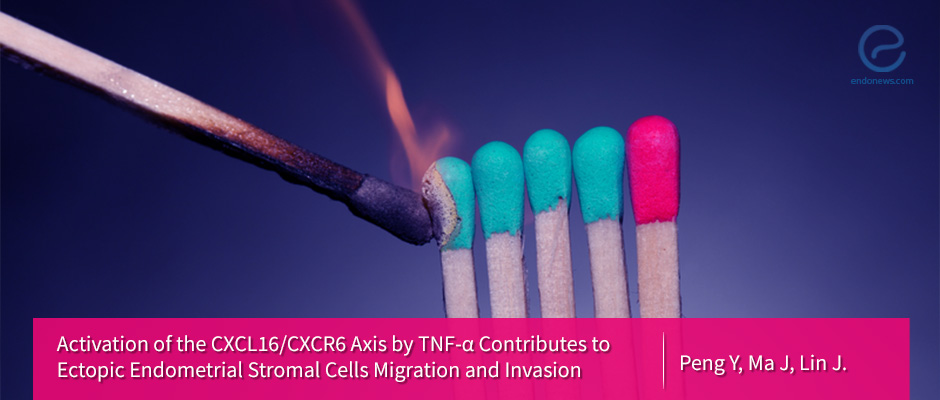A call for mast cells from endometriotic lesions
Endometriosis is a well-known hormonal-dependent inflammatory disease. But what type of inflammatory cells is responsible, and when does estrogen take part, are questions that have not been answered yet. In the study conducted by Alison McCallion et al, the role…
Key Points Lay SummaryFallopian tube occlusion in infertile women with endometriosis
Women with endometriosis suffer from fertility problems with an incidence of 40-50%. Among the pathophysiologic mechanisms resulting in impaired fertility in women with endometriosis, distorted pelvic anatomy due to adhesions, impaired follicular quality-quantity, dysfunction of tubal peristalsis, and implantation problems…
Key Points Lay SummaryInflammatory molecules promote the migration and invasion of endometriosis cells
Increasing scientific evidence has shown that the immune and inflammatory mechanisms play a central role in the progression of endometriosis by allowing a permissive environment that allows migration, adhesion, proliferation, and invasion of endometrial cells in ectopic regions of the…
Key Points Lay SummaryInterleukin 6 secretion from activated macrophages promotes the migration of endometriotic epithelial cells
Endometriosis is a chronic inflammatory disease. Accumulating evidence suggests that endometriosis patients have a higher level of various inflammatory factors which are associated with the pathogenesis of the disease. Several studies have shown marked increases in macrophage populations and activity…
Key Points Lay SummaryCCL19/CCR7 Interaction can Casue Characteristic Cell Proliferation
In their paper published in the American Journal of Reproductive Immunology titled “CCL19/CCR7 contributes to the pathogenesis of endometriosis via PI3K/Akt pathway by regulating the proliferation and invasion of ESCs,” Diao et al. hope to elucidate one of the mechanisms…
Key Points Lay Summary
 By Bahar Yuksel
By Bahar Yuksel

 By Hale Goksever Celik
By Hale Goksever Celik

 By Yu Yu
By Yu Yu

 By Dr. Youngran Park
By Dr. Youngran Park

 By Kasthuri Nair
By Kasthuri Nair